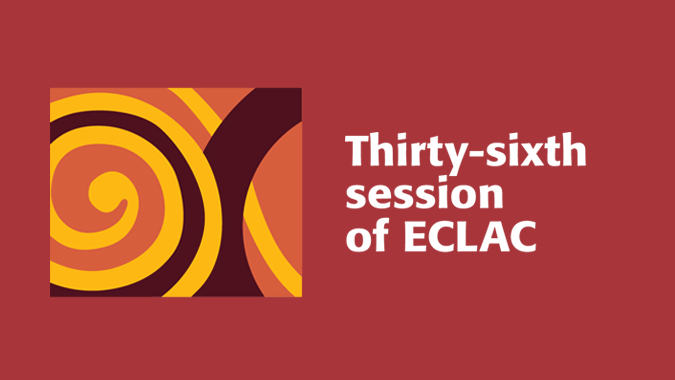Briefing note
The creation of the Forum of the Countries of Latin America and the Caribbean on Sustainable Development was approved by government representatives gathered at ECLAC’s thirty-sixth session, held on May 23-27 in Mexico City. This new entity will constitute the regional mechanism for follow-up and review of implementation of the 2030 Agenda for Sustainable Development, including the Sustainable Development Goals (SDGs) and its targets, their means of implementation and the Addis Ababa Action Agenda on financing for development.
This is stated in the “Mexico Resolution,” approved by foreign affairs ministers and other senior authorities at the conclusion of ECLAC’s most important biennial meeting, along with another 17 resolutions that highlight the relevance of the Commission’s proposals for advancing towards a change in the development pattern based on progressive structural change and a big environmental push.
The Forum will be State-led and open to the participation of all Latin American and Caribbean countries. It will be convened under the auspices of the Economic Commission for Latin America and the Caribbean (ECLAC) and will be guided by the principles established for all follow-up and review processes by the 2030 Agenda for Sustainable Development, adopted by the 193 UN member States in September 2015.
It will involve States, the private sector and civil society and also ECLAC’s subsidiary bodies, development banks, other UN organizations, and regional integration blocs. Its conclusions will be delivered directly to the High-level Political Forum (HLPF), an entity that meets periodically in New York in the framework of the General Assembly and the UN Economic and Social Council (ECOSOC).
This new Forum, the resolution says, should provide useful opportunities for peer learning, including through voluntary reviews, the exchange of best practices and discussion of shared targets, benefiting from the cooperation of regional and subregional commissions and organizations to guide an inclusive regional process.
In addition, the agreement says that the Forum will “build on existing platforms and mandates, avoiding duplications and the creation of additional structures and that within existing resources it will promote coordination and coherence within the United Nations development system, and invite other relevant regional and subregional entities and international financial institutions to be involved in its meetings.”
The resolution also stipulates that the Forum will recognize the special needs and particular challenges of landlocked developing countries, small-island developing States, middle-income countries, the least developed countries, and countries in situations of conflict and post-conflict, in order to respond to the universal character of the 2030 Agenda.
In that sense, the authorities present at the Commission’s thirty-sixth session welcomed the proposals and the integrated development approach presented by ECLAC in its document Horizons 2030: Equality at the Centre of Sustainable Development, as well as its conclusions.
In her closing remarks, ECLAC’s Executive Secretary thanked the Mexican people and its government, led by President Enrique Peña Nieto, for hosting this event, which was attended by 41 member country delegations, 13 United Nations organizations, funds and international programmes, more than 135 non-governmental organizations, two Vice Presidents, more than 30 Ministers, 16 Deputy Ministers and Undersecretaries, as well as ambassadors and directors of cooperation agencies from various nations.
“The chapter that we are writing in this session in Mexico City will sow powerful seeds, seeds of change, of social justice and of equality. We have appropriated a global agenda, with the horizon at 2030, to make it our own, Latin American and Caribbean,” Alicia Bárcena said.
“Today we begin an historic moment for our region. We have approved a Forum of the Countries of Latin America and the Caribbean on Sustainable Development, which will allow us to follow up and review the 2030 Agenda. All the UN organizations, as well as ECLAC’s subsidiary bodies, will be part of this initiative. It is a visionary resolution because it will accompany us during the next 15 years,” Bárcena added.
More information:



